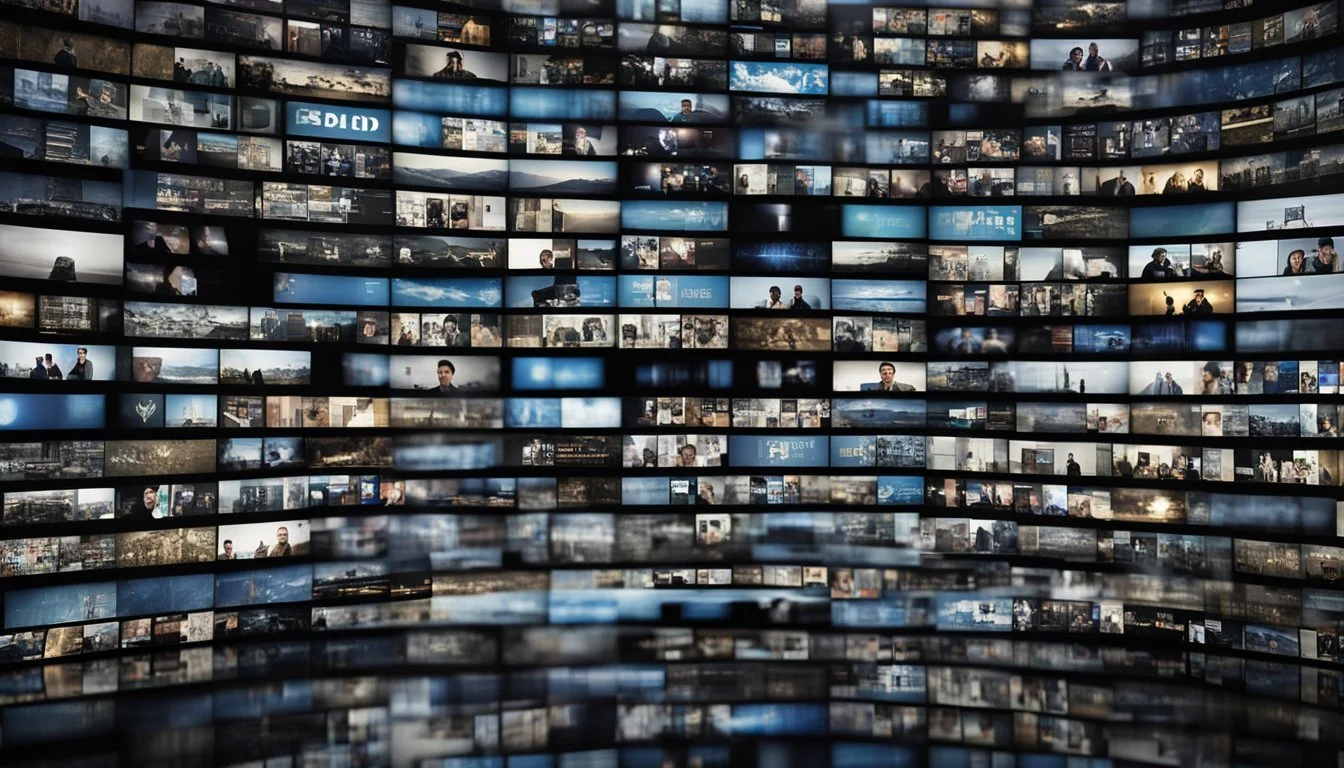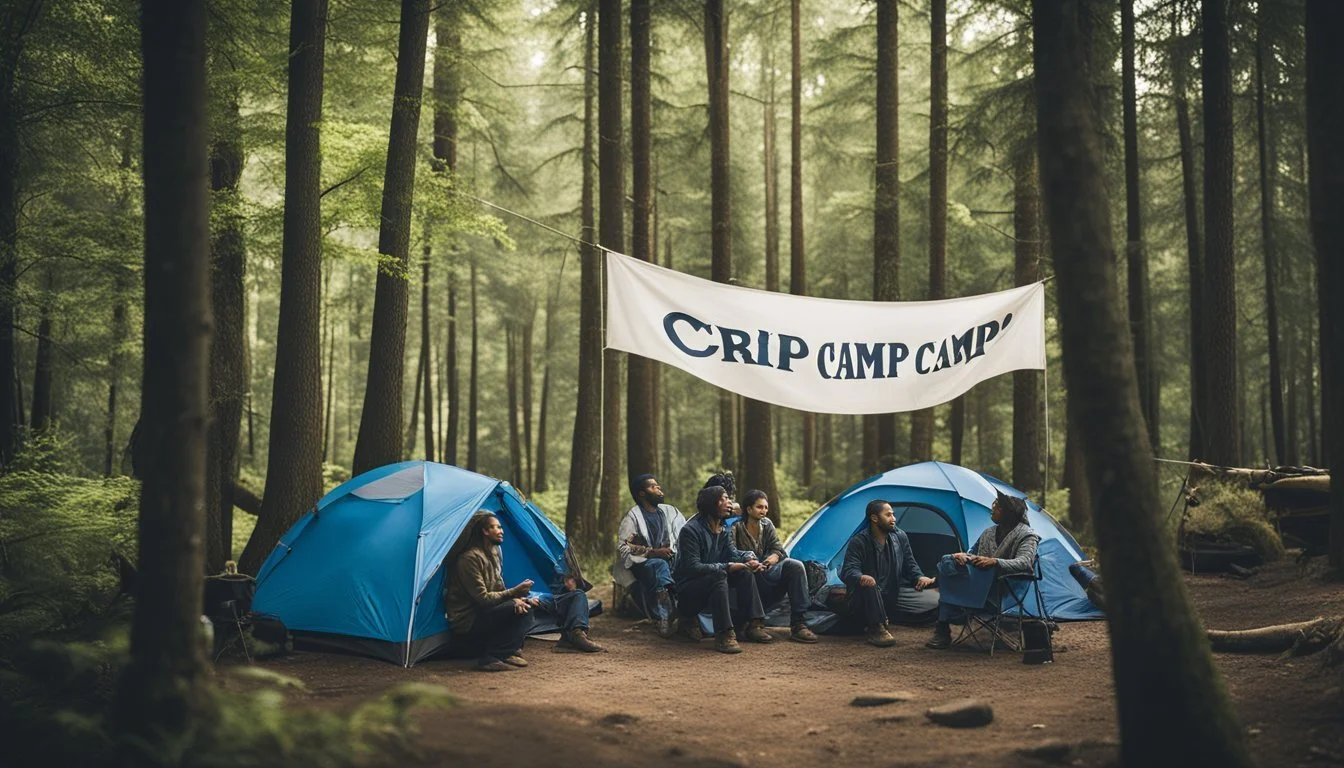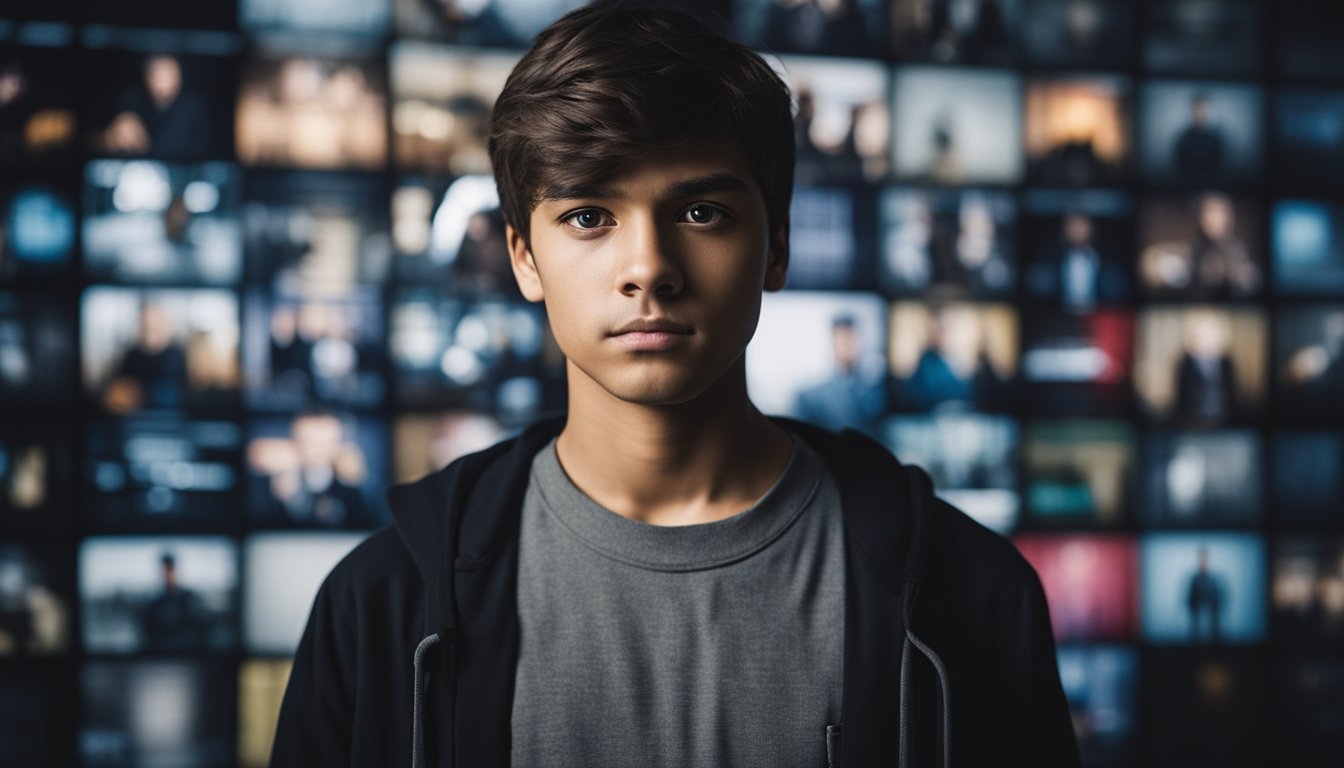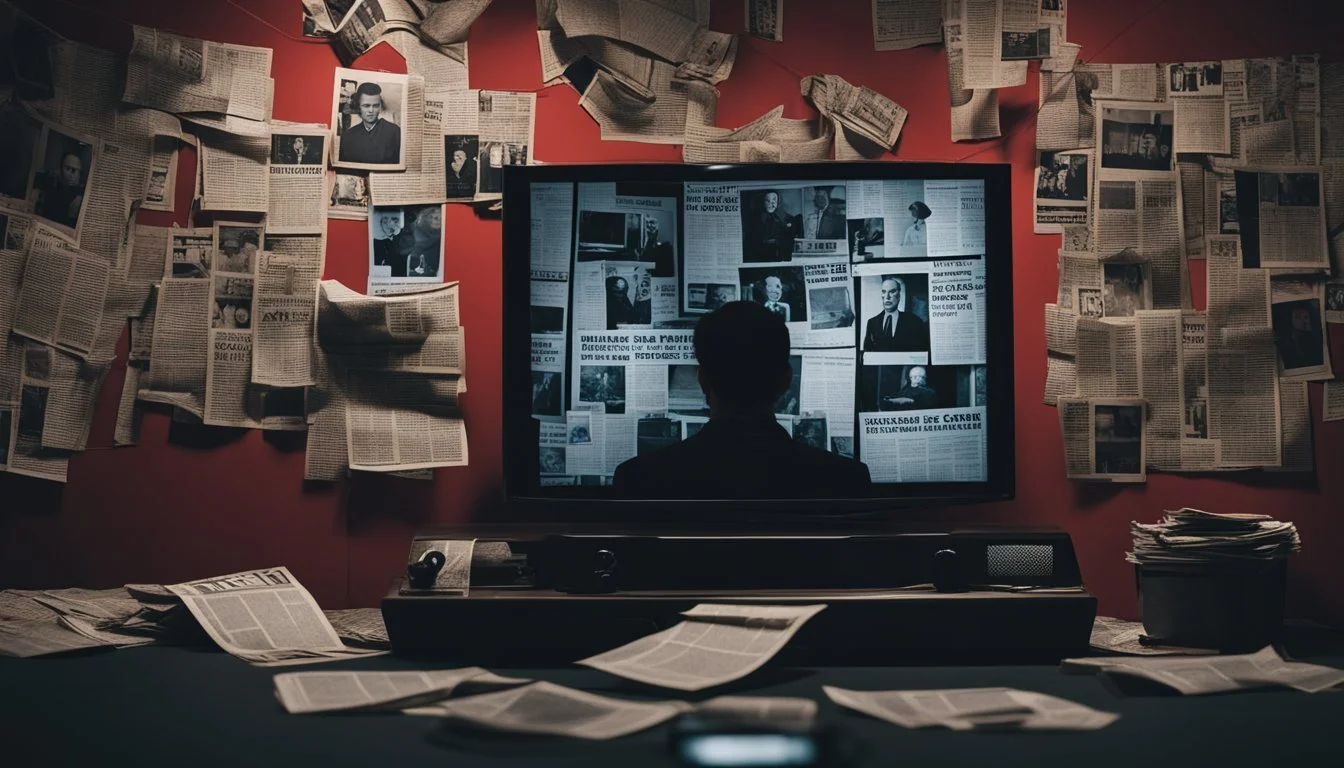9 True Crime Documentaries About Activists Making a Stand
True crime documentaries about activists offer a gripping exploration into the lives of individuals who stood up for their beliefs and faced unimaginable challenges. These films provide viewers with not only the thrill of a crime story but also an in-depth look at social and political activism, shedding light on the intersection of justice and human rights.
For those seeking both factual storytelling and profound insights into the struggles of activists, these documentaries serve as a bridge to understanding the complexities of societal issues. This article curates a list of nine compelling true crime documentaries, each offering a unique perspective on the sacrifices and resilience of activists who have significantly impacted their communities and beyond.
1) The Murder of Fred Hampton (1971)
"The Murder of Fred Hampton" is a documentary capturing the life and untimely death of Fred Hampton. Hampton was a charismatic civil rights activist and leader of the Illinois Black Panther Party.
During the film's production, Hampton was fatally shot in a pre-dawn raid by the Chicago Police Department on December 4, 1969. The raid resulted in his death and that of fellow activist, Mark Clark.
The film initially started as a documentary about Hampton's life and activism. However, after his death, it evolved into a powerful critique of police brutality and government repression.
The documentary provides real-time insights, featuring interviews and footage of Hampton's speeches. It serves as an essential historical record of the struggle faced by the Black Panther Party and the broader civil rights movement during the 1960s.
You can find more information on Wikipedia.
2) Crip Camp (2020)
"Crip Camp: A Disability Revolution" focuses on the pivotal role of Camp Jened, a summer camp near Woodstock, NY. This camp was a haven for teenagers and young adults with disabilities during the early 1970s.
The film sheds light on how Camp Jened fostered a sense of community and empowerment among its campers. Many of them later became key figures in the disability rights movement.
Through a blend of archival footage and contemporary interviews, "Crip Camp" offers an intimate glimpse into the lives of these activists. The documentary emphasizes their significant contributions to the social justice movement for disability rights.
Directed by Nicole Newnham and James LeBrecht, the film was co-produced by Barack and Michelle Obama's Higher Ground Productions. It premiered at the Sundance Film Festival in 2020 and won the Audience Award.
"Crip Camp" has been praised for its emotional storytelling and detailed historical narrative, resonating deeply with audiences and critics alike.
For more information, visit the film's Wikipedia page.
3) The Chicago 10 (2007)
"The Chicago 10" is an animated documentary directed by Brett Morgen. It combines animation with archival footage to tell the story of the Chicago Eight. This group was charged with conspiracy and inciting riots during the 1968 Democratic National Convention.
The film explores the dramatic events of that turbulent period. Through its unique blend of animation and real footage, it provides a compelling narrative of the anti-Vietnam War protests. It also delves into the countercultural movements of the time.
The animated reenactments vividly portray the courtroom drama and political turmoil. By using animation, the film brings a fresh perspective to historical events. It captures the youthful energy and rebellious spirit of the 1960s.
This documentary is notable for its innovative approach to storytelling. It stands out as a thought-provoking piece on political activism and resistance.
For more information, check out Chicago 10 on Wikipedia.
4) 13th (2016)
"13th" is a documentary directed by Ava DuVernay. It examines the intersection of race, justice, and mass incarceration in the United States. The film's title references the Thirteenth Amendment, which abolished slavery except as punishment for a crime.
The documentary explores how the U.S. prison boom disproportionately affects African Americans. Scholars, activists, and politicians provide insights into the criminalization of African Americans throughout history.
The film features interviews with prominent figures such as Angela Davis, Michelle Alexander, and Cory Booker. It highlights the lasting impact of systemic racism on American society.
"13th" lays out a compelling argument that mass incarceration is an extension of slavery. It presents a clear line of history from the end of the Civil War to modern incarceration issues.
The documentary is both powerful and infuriating, aiming to educate and motivate viewers to consider the ongoing effects of racial injustice.
For more information, visit the Wikipedia page on 13th.
5) I Am Not Your Negro (2016)
"I Am Not Your Negro" is a powerful documentary directed by Raoul Peck. It captures the unfinished work of writer James Baldwin, focusing on his reflections on race in the United States.
Narrated by Samuel L. Jackson, the film delves into Baldwin's thoughts on civil rights leaders such as Medgar Evers, Malcolm X, and Martin Luther King Jr. His narrative blends historical footage with Baldwin's poignant voice to offer deep insights.
The documentary employs compelling visual techniques, a soundtrack that enhances its emotional impact, and meticulous editing. Raoul Peck's use of Baldwin's unfinished manuscript, "Remember This House," helps to frame the narrative, providing context and continuity throughout the film.
"I Am Not Your Negro" stands out for its depth and the way it addresses the ongoing struggles against racial injustice. It is both an emotional and intellectual experience, making it relevant for those seeking to understand America's racial history.
For more information, visit Wikipedia or IMDb.
6) Ai Weiwei: Never Sorry (2012)
Ai Weiwei: Never Sorry, directed by Alison Klayman, is a compelling documentary about the Chinese artist and activist Ai Weiwei.
The film covers Ai's fearless activism and his unique way of using art to challenge the Chinese government’s limits on freedom of expression.
Klayman gained extraordinary access to Ai, capturing his personal and professional life over several years.
Ai Weiwei is known for his use of social media and artistic projects as tools for activism.
The documentary highlights his provocative artwork and his numerous run-ins with Chinese authorities.
His efforts have made him a symbol of resistance to oppression.
Ai’s courage and commitment to human rights have resonated globally, making him a prominent figure in contemporary activism.
For more information, you can check the Wikipedia page for Ai Weiwei: Never Sorry.
7) Nashville: The Roughest Place In Town
"Nashville: The Roughest Place In Town" offers a unique glimpse into the darker side of the city often dubbed the Music Capital of the World.
This 2020 documentary explores the gritty realities that have shaped Nashville's history and culture. It highlights how the city has balanced its vibrant music scene with the challenges of crime and social issues.
The documentary takes an in-depth look at the era between 1975 and 2007, a period referred to by true-crime author Michael Arntfield as Nashville's "dark age."
Key figures include homicide detective Pat Postiglione and his team, who worked tirelessly to bring criminals to justice.
By showcasing both the city's allure and its darker side, this film provides a comprehensive view of Nashville's complexities. It invites viewers to see beyond the glitz and glamor, revealing the raw and often harsh realities that lie beneath.
8) The Weather Underground
"The Weather Underground" (2002) delves into the story of a radical activist group from the 1970s.
This documentary, directed by Sam Green and Bill Siegel, highlights the transformation of a faction of student activists into a group committed to extreme measures.
Originating from a split with the Students for a Democratic Society at the University of Chicago, the Weather Underground sought to overthrow the U.S. government.
Their acts included bombings and elaborate jailbreaks, aimed at drawing attention to their cause. Tracing their journey, this film offers a glimpse into their motivations and the consequences of their violent actions.
The documentary features interviews with former members, providing insight into their mindset and the internal dynamics of the group.
For more information, visit IMDb.
9) Joshua: Teenager vs. Superpower (2017)
Joshua: Teenager vs. Superpower is a documentary highlighting the efforts of Joshua Wong, a teenage activist in Hong Kong. Directed by Joe Piscatella, the film chronicles Wong's leadership during the 2014 Hong Kong Occupy Movement.
At just 14, Wong began advocating for democratic reforms in Hong Kong. He rallied thousands of young citizens in protest against the Chinese Communist Party's erosion of Hong Kong's promised autonomy.
The documentary portrays Wong's courage and determination, showing his transformation from a young student to a prominent political figure. His activism did not just inspire his peers but also caught international attention.
In 2017, the film premiered at the Sundance Film Festival and later secured worldwide streaming rights on Netflix. It provides an inside look into the struggles faced by young activists in authoritarian regimes.
For more information, visit Joshua: Teenager vs. Superpower on IMDb.
Impact of True Crime Documentaries on Activism
True crime documentaries significantly affect activism by raising public awareness and influencing legislative changes. These films often highlight overlooked social issues while engaging viewers to inspire change.
Raising Awareness
True crime documentaries captivate audiences, drawing attention to issues that might otherwise remain unseen. For instance, films like "The Interrupters" focus on inner-city violence, bringing to light the efforts of activists combating these problems. By showcasing personal stories and struggles, these documentaries humanize broader social issues.
Moreover, documentaries such as "Making a Murderer" provoke public discourse. The detailed exploration of injustices within these films can spur viewers to question, investigate, and engage with the subject matter.
Social media plays a role in amplifying the messages from these documentaries, creating widespread awareness. Collaborations with influential figures and organizations further extend their reach.
Influencing Legislation
Some true crime documentaries drive changes in laws and policies. For example, the exposure of wrongful convictions in "Making a Murderer" led to increased scrutiny on the criminal justice system. Public pressure following these revelations often compels lawmakers to take action.
Documentaries like "The Jinx" have prompted formal investigations and reopened cold cases. The new evidence and perspectives presented can lead to legislative reviews, modifications of legal frameworks, and even new laws.
These films serve as catalysts for advocacy groups, providing them with compelling evidence to support legislative proposals. They also offer a platform for victims and activists to share their experiences, advocating for systemic change.
Key Themes in True Crime Documentaries About Activists
These documentaries often focus on the quest for social justice and the fight for human rights. They provide detailed accounts of activists' struggles and the impact of their actions on society.
Social Justice
True crime documentaries about activists frequently spotlight their relentless efforts to achieve justice. These films typically examine cases where individuals or groups strive to rectify systemic failures.
For instance, the Paradise Lost series highlights the duo's fight against wrongful convictions and their quest to uncover the true perpetrators. Their dedication to justice not only reshapes public opinion but also inspires legislative changes.
Other documentaries delve into stories of marginalized communities facing injustices, showcasing activists' commitment to fair treatment and equity. They emphasize how activism can lead to tangible policy reforms and increased public awareness.
Human Rights
Human rights form a central theme in many true crime documentaries focused on activists. These films explore how activists challenge violations and advocate for fundamental freedoms.
Films like The 13th reveal the persistent efforts to confront racial injustices and mass incarceration in the U.S. Activists in these documentaries often risk personal safety to defend human rights and bring about legal and social changes.
These documentaries underscore the intersection of activism and human rights, highlighting how activists expose abuses, hold perpetrators accountable, and push for systemic transformations. Activism is shown as a crucial force in safeguarding human dignity and promoting equality.









